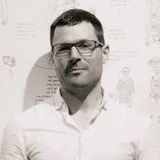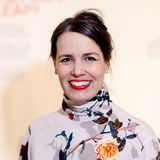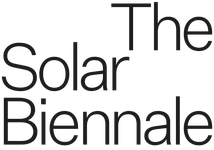The sun, our source of life, has become the cheapest source of energy today. Yet designing a fossil-free world for all, powered by the sun, requires more than technocratic solutionism and one-size-fits-all panels. The Solar Biennale envisions and critically reflects on the future of solar energy in a series of 4 Solar Lectures at Pakhuis de Zwijger.
During the second Solar Lecture by The Solar Biennale we explore the social relations with energy and the sun. The sun is there for everyone to enjoy. But how do we harvest her power in a democratic way? Can we imagine a society where energy is sourced, owned and distributed like a commons? What can we learn from decentralized, and more inclusive systems where consumers become producers? What would the world look like when solar energy is abundant and which new relationships does solar design enable?
Lynn Zebeda will discuss these and other questions with her guests and will invite you, the audience, to join the conversation.
About the speakers:
Pallas Agterberg works on the strategic topics in energy transition and the related societal change and industrial transformation. With a history in organizational change, digital innovation and product development, she has been active in the energy branch since 2001. She works at Alliander as Challenge officer, is Member of Council Rli, Chair of One Planet Research Food and Health and co-founded the Solar Movement and Solar Biennale.
Melle Smets is a visual and conceptual artist with a broad experience in artistic research and social interventions. As an “archaeologist of the present” Smets explores and interprets society by looking hard at contemporary landscapes. Using existing social structures and local customs as a starting point, Smets presents an alternative view on our landscape and culture. Smets is the founder of the Aardschap foundation, an action-research group that uses methods from arts and science to help communities transform their environment.
Eva Pfannes is an architect and urban designer working in Europe, India and Brazil. She co-founded the international design practice OOZE in 2003 with Sylvain Hartenberg. With OOZE she combines an elaborate understanding of natural, ecological processes, with technological expertise and deep insights in to the social-cultural behaviour of users of the built environment. Eva is co-curator of the ninth edition of the International Architecture Biennial Rotterdam (IABR), DOWN TO EARTH (2020 – 2021). She is the team lead for the City of 1000 Tanks project in Chennai, part of the global Water as Leverage program of the Dutch Government. Her expertise covers urban, participatory and climate resilience strategies including Nature Based Solutions and developing multi system models with an interdisciplinary team.

The Solar Biënnale presents a new and holistic perspective on the energy of the sun. You can visit the first global Solar Biennale from Sept–Oct 2022 in Rotterdam. Read more here

On October 13 2021 the plans for The Solar Biënnale 2022 were publicly announced with a kick-off event at Het Nieuwe Instituut. See the youtube-registration here.








